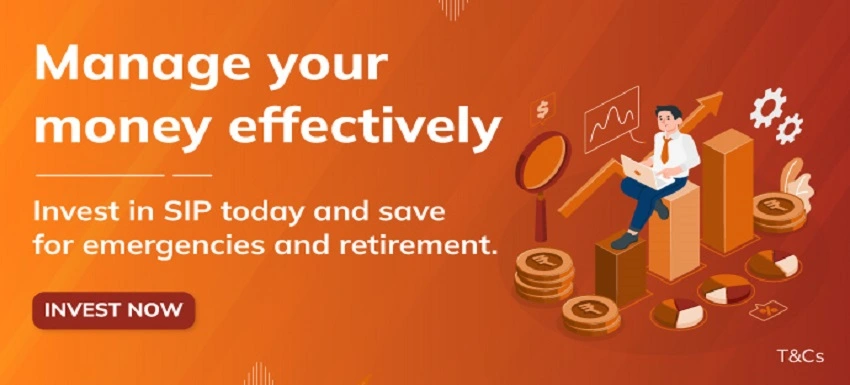THE
ORANGE
HUB
Key differences between Equity and Debt Funds

Mutual Funds can be a way to build wealth. It's essential to know the differences between Equity and Debt Funds. Equity Funds and Debt Funds are two types of Mutual Funds. This blog will talk about what Equity and Debt Funds stand for, their advantages, distinctions and how to select an investment based on your objectives.
What is an Equity Fund?
Equity signifies ownership in a company. Buying shares makes you a partial owner of the organisation. By investing in Equities, you aim for the value of these shares to increase over time, generating returns on your investment.
Benefits of investing in Equity Funds:
- Investing in stocks can potentially yield returns compared to investment options. Historically the stock market has outperformed other types of assets over a long term
- When you own shares in a company, you have a stake in its growth and profitability. As the company expands, the value of your investments may rise
- Some companies pay dividends to their shareholders as payments from their profits, offering a source of passive income
- Stock investments are usually easy to buy and sell on the Stock Exchange providing liquidity for investors.
What is a Debt Fund?
Debt Funds are funds that focus on low-risk categories. Fixed-income securities like bonds, treasury bills etc. are types of debt instruments. The main goal of these funds is to offer investors income by investing in instruments with low volatility over time.
Benefits of Debt Funds:
- Compared to Equity Funds, Debt Funds tend to provide stable returns as they invest in securities that offer regular interest payments
- Debt Funds are generally seen as less risky than Equity Funds because they primarily invest in fixed-income instruments
- Investors can expect a stream of income from Debt Funds through interest payments from the securities they hold
- Opting for Debt Funds can help broaden your investment portfolio, balancing out the risks linked with investing in stocks
- Many Debt Funds offer liquidity, making it convenient for investors to purchase and sell their units easily.
Key differences between Equity and Debt Funds
Having a grasp of the differences between Equity and Debt Funds can assist you in making informed investment choices. Here are the key differences:
Parameters |
Equity Mutual Funds |
Debt Mutual Funds |
Risk-Reward Profile |
Equity Funds primarily invest in stocks, which are higher-risk assets but offer higher returns over the long term. |
Debt Funds invest in fixed-income securities like government and corporate bonds. They are lower risk and potentially offer lower returns. |
Investment Horizon |
Suitable for investors with a longer investment horizon (typically 5 years or more) who can handle market ups and downs. |
Ideal for investors with a shorter investment horizon who seek stable returns and lower risk. |
Returns |
Historically, Equity Funds can provide higher returns over the long run, but they can also experience significant short-term fluctuations. |
Debt Funds typically offer lower returns compared to Equity Funds but provide a more predictable and stable income stream. |
Diversification |
Equity Mutual Funds invest in a range of stocks across different sectors, which help spread risk. |
Debt Mutual Funds invest in various fixed-income instruments, which help reduce the risk of default. |
Instruments |
Investments include stocks or equity-related instruments. |
Investments include debt instruments such as Non-Convertible Debentures (NCDs), Certificates of Deposit (CDs), Treasury Bills (T-Bills), Commercial Papers (CPs), Government Securities (G-Secs) and Corporate Bonds. |
Taxation |
20% (if held for less than 1 year) and |
Slab rate |
How to choose the right investment
Here are certain factors to be considered when choosing an investment:
- Risk tolerance
Firstly, it's essential to know your comfort level with risk. Some investments, such as Equity Funds, come with risks but the potential for greater returns. If you are okay with market fluctuations and are willing to accept the chance of losses in exchange for long-term growth opportunities, then Equity Funds could be a fit. On the other hand, if you prefer stability and lower risks, you might find Debt Funds more suitable.
- Have clear investment objectives
Next, clearly outlining your objectives is crucial. Are you aiming for long term goals like retirement or your child's education, or do you have short term targets like purchasing a car or funding a holiday? Your goals will play a role in determining the appropriate investment choice for you. Generally speaking, Equity Funds are more geared towards long term goals due to their potential for growth, while Debt Funds are better suited for short or medium-term objectives because of their stability.
- Consider expert guidance
Seeking guidance from an expert can be beneficial as they offer advice based on your financial circumstances, objectives and risk tolerance. They can assist you in crafting an investment portfolio that aligns with your goals and navigate you through the investment process smoothly.
Conclusion
To choose the right investment type for you, consider factors like goals, risk tolerance, investment horizon and current market conditions. Make smart investment choices, always stick to your financial objectives and you will be able to grow your wealth and secure your financial future comfortably.
Scroll to top











